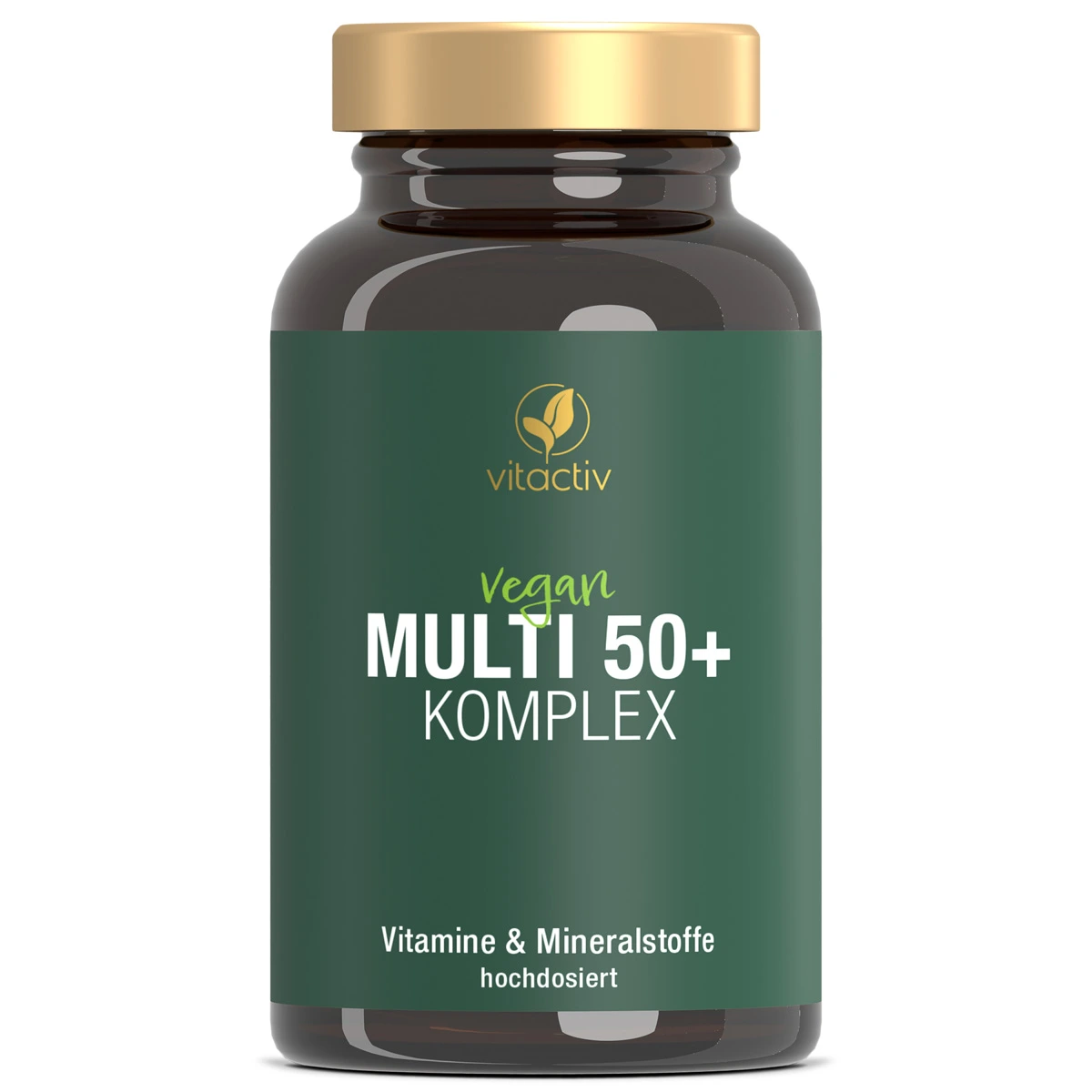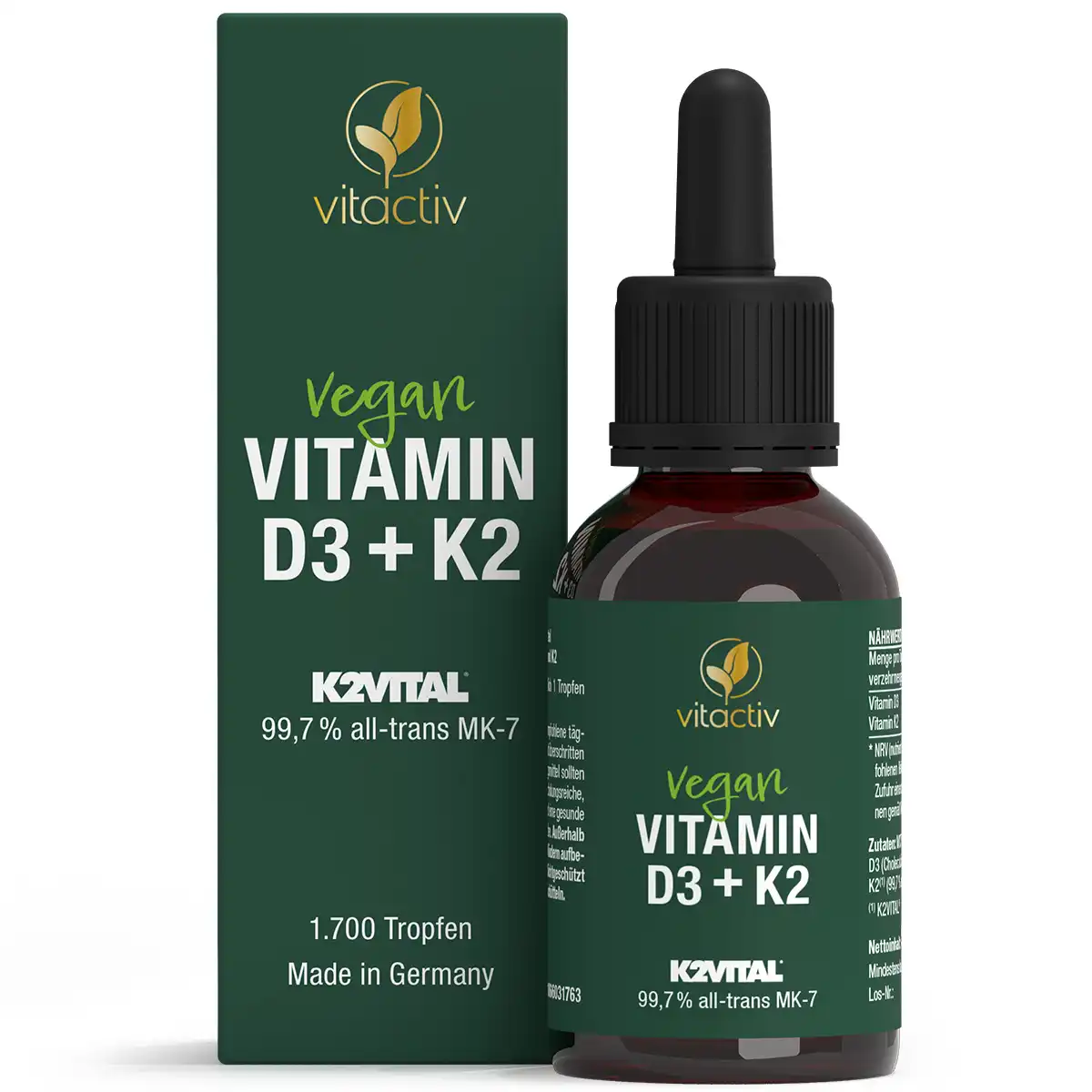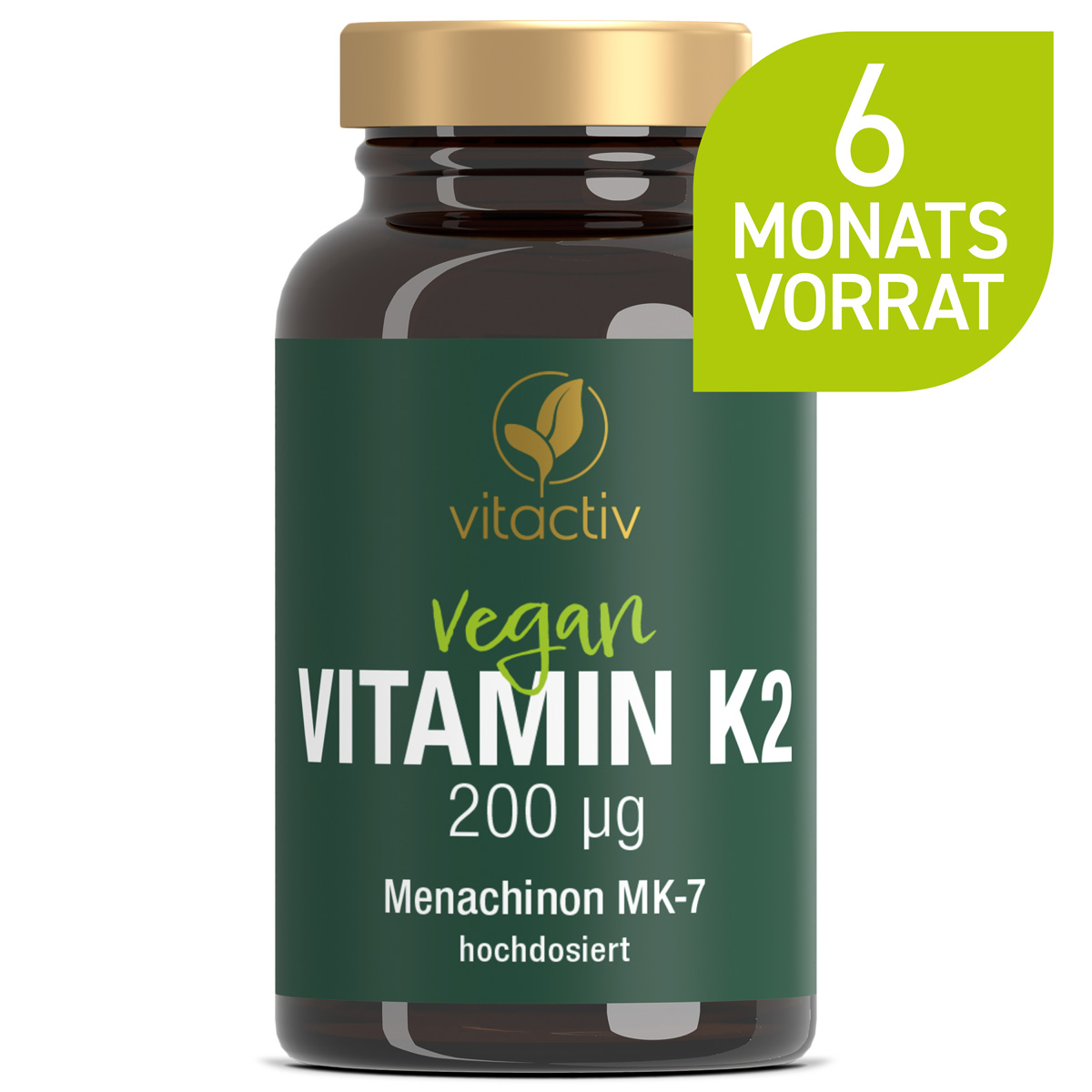Buy vitamin K: for maintaining healthy bones
Healthy bones are crucial for stability, mobility
and protection. They support the body and reduce the risk of injuries
and diseases. Here you can find out all about what vitamin K can do for your
can do for your bones.
When the bones shrink ...
The human skeleton is made up of over 200 bones. While some measure just a few millimetres, the longest and heaviest bone is around half a meter long - the femur.
From the age of 40, bone mass decreases by around 1% every year. If you extrapolate this, you quickly come to the conclusion that around ¼ of our bone mass has disappeared by the age of 65. The consequences can be osteoporosis, arthritis and arthrosis.
Vitamin K instead of calcium?
Calcium is considered the most important mineral for maintaining normal bones. This is why calcium products are often used. Nevertheless, more and more older people are suffering from bone problems.
Because what many do not know: Vitamin K2 plays a key role in the utilization and storage of calcium in the body. If calcium is not directed into the bones, however, this can even lead to dangerous deposits in the blood vessels and thus to arteriosclerosis. Special preparations for maintaining bone health therefore combine calcium with vitamin K2 as standard.
If there is a predisposition to osteoporosis - as is often the case in women
after the menopause - it is particularly worth combining vitamin K2 with
vitamin D3. After all, a deficiency of the sun vitamin can also promote osteoporosis.
DGE recommendations
The DGE (German Nutrition Society) specifies the daily vitamin K requirement as follows:
- Infants from 0 to under 4 months: 4 μg
- Infants from 4 to under 12 months: 10 μg
- Children from 1 to under 4 years: 15 μg
- Children from 4 to under 7 years: 20 μg
- Children from 7 to under 10 years: 30 μg
- Children from 10 to under 13 years: 40 μg
- Children from 13 to under 15 years: 50 μg
- Male teenagers and young men aged 15 to 25: 70 μg
- Female teenagers and young women aged 15 to 25: 60 μg
- Men aged 25 to under 51: 70 μg
- Women from 25 to under 51 years: 60 μg
- Men aged 51 and over: 80 μg
- Women aged 51 and over: 65 μg
Pregnant and breastfeeding women do not have an increased vitamin K requirement. It is therefore 60 μg.Vitamin K is one of the fat-soluble vitamins. Vitamins K1 and K2 can be obtained from the following foods:
- Green vegetables - such as spinach and some types of lettuce and cabbage
- Milk and dairy products
- meat
- eggs
Anyone who cannot always ensure a reliable supply of vitamin K through a balanced diet, cannot optimally absorb vitamin K for medical reasons or would like to support their own bone health could benefit from vitamin K supplements.
Who is susceptible to a vitamin K deficiency?
Vitamin K deficiency is extremely rare in Germany. Newborn babies are at the highest risk of a vitamin K deficiency, as the vitamin is only transferred insufficiently via the placenta. As a vitamin K deficiency can lead to bleeding in the first few weeks after birth, babies in this country are given vitamin K drops as a prophylactic measure.
Apart from this, a vitamin K deficiency mainly occurs in people who suffer from a disease of the gastrointestinal system and whose absorption of vitamin K is therefore restricted. These include, for example, coeliac disease, ulcerative colitis or cystic fibrosis. However, a surgical reduction of the stomach can also be the trigger for vitamin K not being optimally absorbed.
Should I take vitamin K in conjunction with a blood thinner?
A vitamin K deficiency can also occur when taking certain blood thinners. Many of these preparations are known as vitamin K antagonists. Phenprocoumon, which is known under the brand name Marcumar, is the most common of these.
For a long time, taking blood thinners in combination with vitamin K was considered counterproductive. However, some studies now indicate that taking them in combination could have a positive effect in individual patients.1
The following applies in any case: anyone taking blood thinners that are considered vitamin K antagonists should under no circumstances supplement on their own. In order to prevent blood clotting disorders, any supplementation with vitamin K should always be discussed with the doctor treating you.
Buy vitamin K
-
useful from the age of 40
So why should you supplement with vitamin K if a deficiency only occurs in exceptional cases? There are actually some good reasons for this:
Studies show that a long-term intake of vitamin K can significantly reduce the risk of age-related bone fractures.2 Supplementing with vitamin K can make sense from the age of 40. Incidentally, vitamin K also contributes to normal blood clotting.
It's best to order directly from us
If you want to buy vitamin K, ordering from us in the Feelgood Shop offers you nothing but advantages:
- You have the choice between vitamin K and combination preparations (e.g. as drops in combination with vitamin D3) at a top price-performance ratio - almost all vegan
- You only get pure, natural vitamin K from us
- The quality of every product is tested in Germany
- If you wish, you can get qualified advice by phone or e-mail
- There are no shipping costs if you order from Germany or Austria
Sources:
2Cockayne S, Adamson J, Lanham-New S, Shearer MJ, Gilbody S, Torgerson DJ (2006): Vitamin K and the prevention of fractures: systematic review and meta-analysis of randomized controlled trials. Arch Intern Med; 166: 1256-1261).



